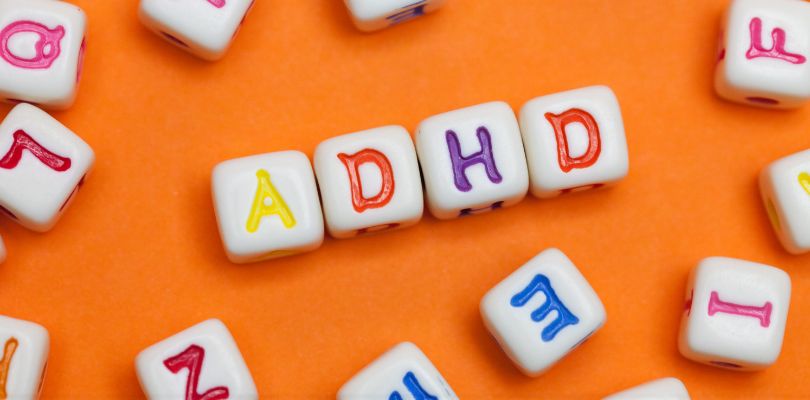ADHD Treatment Options
ADHD is a common neurodevelopmental condition that affects an estimated 15.5 million adults in America. Quillivant XR can help. It's an extended-release liquid medication prescribed to treat ADHD.
1. Quillivant XR
Quillivant XR belongs to a class of drugs called central nervous system stimulants, which work by increasing levels of dopamine and norepinephrine in the brain. These neurotransmitters play a key role in focus and attention.
Quillivant XR is ideal for individuals who struggle to swallow pills, making it a great option for children and adolescents. That said, it is still used by plenty of adults with ADHD. It is a commonly prescribed medication, as it provides consistent symptom relief throughout the day and allows precise dosage adjustments based on individual needs.
Potential side effects of Quillivant XR include appetite suppression, insomnia and irritability.
What is lupus? The mysteries surrounding it make it a particularly dangerous health threat that could damage the body and set the stage for other diseases.
2. Other Stimulant Medications
Stimulants are typically the first line of treatment for ADHD because of their proven effectiveness. They work quickly and are often tailored to meet the specific needs of each patient. As a result, there are quite a few other stimulant medications that are often prescribed to treat ADHD. Some of the most common ones include:
- Adderall (amphetamine/dextroamphetamine): Available in immediate-release and extended-release forms.
- Ritalin (methylphenidate): Known for its quick onset of action.
- Vyvanse (lisdexamfetamine): Designed for smooth, sustained symptom control.a
3. Non-Stimulant Medications
Though stimulants have a proven success rate, they’re not for everyone. Some individuals report significant side effects. As a result, non-stimulant medications can be a suitable alternative. These include:
- Strattera (atomoxetine): A selective norepinephrine reuptake inhibitor that helps improve focus and reduce impulsivity.
- Guanfacine (Intuniv) and Clonidine (Kapvay): Alpha-2 adrenergic agonists that can help with emotional regulation and sleep issues.
Non-stimulants are particularly useful for patients with coexisting conditions like anxiety or those who are at risk of stimulant misuse.
4. Behavioral Therapy
Often used in tangent with medication, behavioral therapy involves identifying negative behaviors caused by ADHD symptoms and replacing them with positive actions. The combination of medicine and therapy has proven to create a well-rounded treatment plan.
For individuals with ADHD, therapy targets symptoms such as:
- Impulsivity.
- Poor time management.
- Difficulty completing tasks.
- Emotional regulation.
- Social challenges.
Behavioral therapy focuses on developing practical skills and coping mechanisms. Common approaches include:
- Cognitive behavioral therapy (CBT): Helps individuals manage impulsivity, negative thought patterns and emotional regulation.
- Parent training and education: Equips parents with strategies to support their child’s behavioral challenges.
- Social skills training: Teaches interpersonal skills to improve peer interactions.
5. Lifestyle Changes
Though it might seem simple, when used in conjunction with traditional treatments, lifestyle adjustments can actually be quite effective in combating ADHD. Some of these lifestyle modifications include:
- Regular exercise: Physical activity boosts dopamine levels, improving focus and reducing hyperactivity.
- Healthy diet: Nutrient-rich foods and avoiding excessive sugar can stabilize energy levels.
- Structured routines: Consistent schedules help individuals with ADHD stay organized and reduce stress.
6. Educational Support
Oftentimes, people struggle with ADHD due to a lack of education or awareness about their own condition. As a result, it can be a challenge for them to advocate for themselves in school and ask for proper accommodations in school settings. Some of these accommodations might include:
- Extra time on tests or assignments.
- Preferential seating to minimize distractions.
- Access to school counselors or special education services.
Teachers and parents can work together to help facilitate these needs.
7. Alternative Treatments
Some patients explore alternative treatments, such as:
- Mindfulness and meditation: Improves focus and reduces stress.
- Neurofeedback: A type of biofeedback that trains individuals to regulate brainwave activity.
- Supplements: Omega-3 fatty acids and zinc have shown potential benefits in managing ADHD symptoms.
However, these approaches should be used with caution and under the guidance of a healthcare professional, as evidence for their effectiveness is still emerging.







